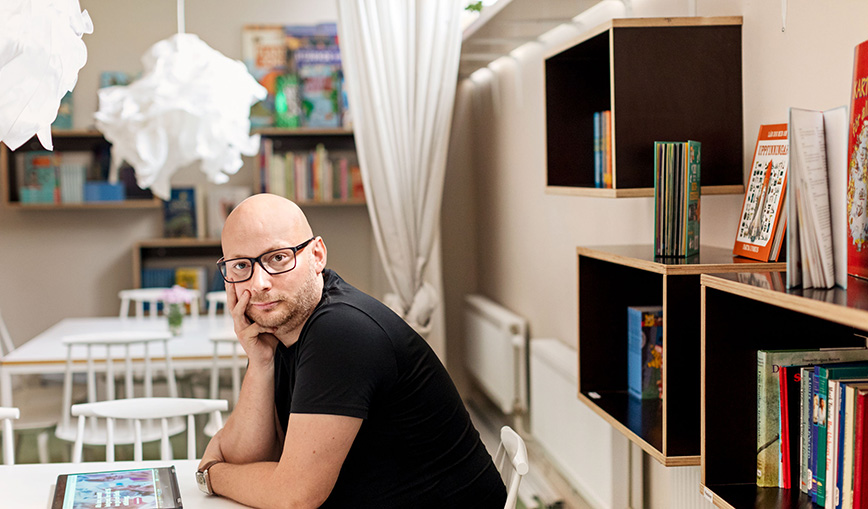He received the prize for transforming KTH’s teaching during the pandemic

Hello there Stefan Stenbom, lecturer at the ITM School's Department of Learning. When KTH quickly switched from traditional education to digital teaching this spring, you were tasked with leading and coordinating the transformation. What do you think about the fact that you were awarded KTH's 2020 Pedagogical Prize for your efforts?
"I see the prize as proof of the team effort we made last year so that KTH could continue to teach during the pandemic."
Stefan Stenbom emphasises the project group's collective success. Still, he does not shy away from acknowledging that he had the right mix of experiences in his back pocket that allowed him to lead the transformation successfully.
"My background as a researcher and teacher in digital learning had equipped me well for the task. My doctoral dissertation from 2015 is about a framework for high-quality digital learning environments. Besides, for the past three years, I have served as the object owner for the e-learning object at KTH," says Stefan Stenbom.
Stefan Stenbom also has a background in the Swedish Armed Forces and is trained to lead operations during crises. He sees this as another reason why he received the assignment.
"I was acquainted with processes and methodology from my time there that we could directly apply. At the same time, it was a little scary. The responsibility I had to take on this spring was greater than what I felt comfortable with," admits Stefan Stenbom, adding: "I had to grow into some huge shoes in the course of our work. I was thrown into KTH's decision-making organisation's contexts and levels in which I had never found myself previously. It's not surprising that my research projects and doctoral students have suffered as a result."
Pedagogical challenges
"At KTH, there's a traditional notion of how education and summative assessment should be conducted," says Stefan Stenbom. "This is related to the fact that many teachers have their educational background within KTH, but few of them have a teacher education.
"In the research sphere, what we initially did at KTH is called emergency remote teaching. It involves transforming a campus-based course into a digital one with short notice, where the course structure is otherwise rarely changed. That's seldom ideal because a course with the same learning objectives is often structured very differently to achieve high quality digital versus on-campus teaching," Stefan Stenbom explains.
He says that it is challenging to find digital forms of summative assessment that are accepted at KTH, where we have a strong tradition of seated exams. Yet, he still believes that it is a positive development to implement more diverse summative assessment methods within the organisation.
Lessons from the past year
Stefan Stenbom emphasises how valuable it was that everyone involved shared a common view of the situation. One crucial success factor was the close collaboration between various KTH units and the daily exchange of experiences.
"Radical changes could be implemented because everyone felt that we 'were all in the same boat' and were thus focused on cooperating and contributing as best we could," says Stefan Stenbom. He continues: "In three weeks, KTH succeeded in rescheduling re-examinations for 6,000 students, which were conducted remotely over Easter. Although, of course, there were challenges, and not everything was ideal, I think it clearly shows what KTH is capable of."
He also mentions the importance of being able to prioritise under challenging situations.
"At KTH, people often talk about prioritisation. It's all about seeing what's most important in the organisation. At the same time, you have to dare to back-burner less important things, at the risk of disappointing someone."
Words: Marianne Norén

